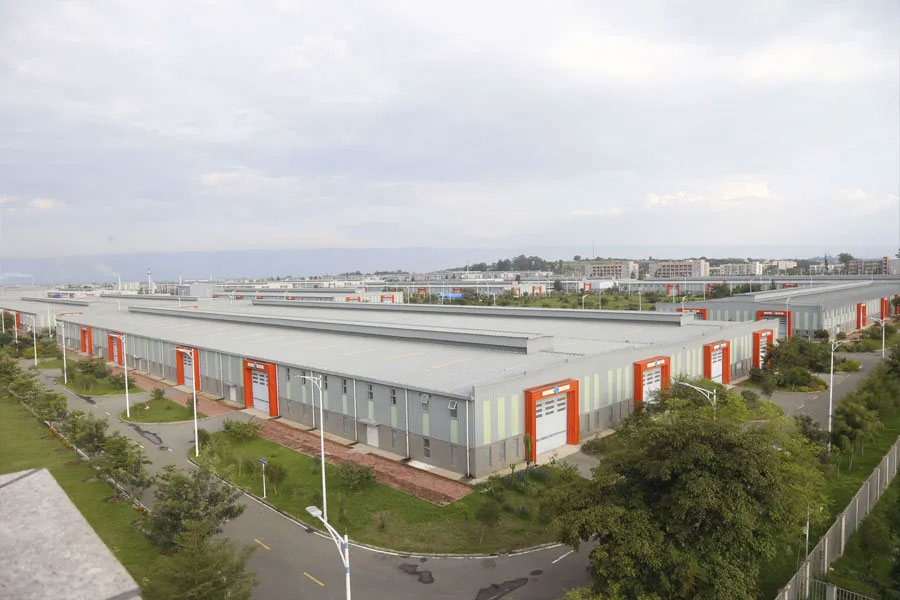
Fortune News | May 13,2023
Mar 2 , 2019
By Eden Sahle
Poverty and inequality are traumas that continue to haunt Ethiopia and are a reflection of the economic and political conundrum the nation is in. Inequality, which has been creeping up over the past decades, reinforces social biases against the poor and destitute, which in turn brings sociopolitical tensions.
Those who have higher economic status and more privileges than others tend to believe they possess the right to discriminate, which is characteristic of the human condition. In this unequal social spectrum, the unfair treatment is not directed against individuals and social groups of certain ethnicities, religions or races, but mostly lower economic statuses.
The Ethiopian state has never quite figured out how to help those in need and address poverty. From a more capitalist dispensation to an outright Marxist-Leninist leaning, government policies have recurrently failed to realise an allocation of resources for the maximum productive use.
To this day, despite the leftist roots of the incumbent coalition, the economic structure of the nation has continued to benefit those that have an early start. The lack of inclusive political and economic institutions has meant low levels of social mobility and creative destruction. This has made a large middle-class, despite its growing numbers, a possibility that is too far away.
The natural tendency of such inequality is social segregation, since the rich network with the rich and the poor with the poor. Without democratic systems that can correct for this imbalance by ensuring that merit and hard work matter to individual’s economic status, the problem will lead to a segment of the population that will be unable to partake in social and civic participation.
I went to private schools where the majority of the students felt empowered compared to their peers who were assumed to be economically underprivileged. Friendships were made based on what students could show off with their parents’ wealth.
It is not a problem only in schools, and such behaviours are not only symptoms of a lack of exposure. It is a problem that gets worse in adulthood, as it can be easily discerned among individuals in their 40s and 50s who are still desperately trying to fit into social groups. Instead of having goals and passions in a career, many spend their valuable time working hard to belong in circles that espouse opulent lifestyles.
Scarcity of resources eats away at the unifying and constructive force that holds society together, especially if the means of getting by are determined by factors such as birth. It is inevitable that there will be rich people in any society where private enterprise is allowed, and individuals will always aspire to have the wealth and privilege others have. Left without a fair system of distribution of resources though, this tendency becomes unhealthy, creating tensions under the different strata of society.
Most people in Ethiopia perceive poverty as an individual phenomenon primarily caused by an individual's laziness. Nonetheless, most of the time, poverty is systematic and arises out of an inefficient state unable to create an environment where merit can be rewarded and basic needs, such as health care and education, can be provided.
Poverty is a symptom of poor leadership, lack of proper planning and mismanagement. Unless these fundamental factors are addressed, the tensions within the various social strata will continue to erupt, masking themselves as ethnic or religious struggles. The struggles we are seeing now, like it has been the case before, is for the domination of the political and economic institutions of the nation, an approach that will worsen the tensions currently evident in the country. This should be improved into a struggle to make institutions inclusive of Ethiopians from every background.
Prime Minister Abiy Ahmed (PhD) has said that it is possible to rise above the conflicts that the country has become prone to as long as economic expansion continues. Indeed, if Ethiopia becomes a state able to address its deeply economic structural flaws, it would be a more stable nation that is at peace with itself.
PUBLISHED ON
Mar 02,2019 [ VOL
19 , NO
983]

Fortune News | May 13,2023

Commentaries | Sep 08,2024

Radar | Oct 20,2024

Sunday with Eden | Jul 08,2023

My Opinion | Jul 17,2022

Radar | Apr 21,2024

Fortune News | Nov 18,2023

Editorial | Jun 12,2021

Sunday with Eden | Nov 18,2023

Editorial | Mar 09,2019

My Opinion | 131981 Views | Aug 14,2021

My Opinion | 128369 Views | Aug 21,2021

My Opinion | 126307 Views | Sep 10,2021

My Opinion | 123925 Views | Aug 07,2021

Dec 22 , 2024 . By TIZITA SHEWAFERAW
Charged with transforming colossal state-owned enterprises into modern and competitiv...

Aug 18 , 2024 . By AKSAH ITALO
Although predictable Yonas Zerihun's job in the ride-hailing service is not immune to...

Jul 28 , 2024 . By TIZITA SHEWAFERAW
Unhabitual, perhaps too many, Samuel Gebreyohannes, 38, used to occasionally enjoy a couple of beers at breakfast. However, he recently swit...

Jul 13 , 2024 . By AKSAH ITALO
Investors who rely on tractors, trucks, and field vehicles for commuting, transporting commodities, and f...

Jul 5 , 2025
Six years ago, Ethiopia was the darling of international liberal commentators. A year...

Jun 28 , 2025
Meseret Damtie, the assertive auditor general, has never been shy about naming names...

Jun 21 , 2025
A well-worn adage says, “Budget is not destiny, but it is direction.” Examining t...

Jun 14 , 2025
Yet again, the Horn of Africa is bracing for trouble. A region already frayed by wars...

Jul 6 , 2025 . By BEZAWIT HULUAGER
The federal legislature gave Prime Minister Abiy Ahmed (PhD) what he wanted: a 1.9 tr...

Jul 6 , 2025 . By YITBAREK GETACHEW
In a city rising skyward at breakneck speed, a reckoning has arrived. Authorities in...

Jul 6 , 2025 . By NAHOM AYELE
A landmark directive from the Ministry of Finance signals a paradigm shift in the cou...

Jul 6 , 2025 . By NAHOM AYELE
Awash Bank has announced plans to establish a dedicated investment banking subsidiary...